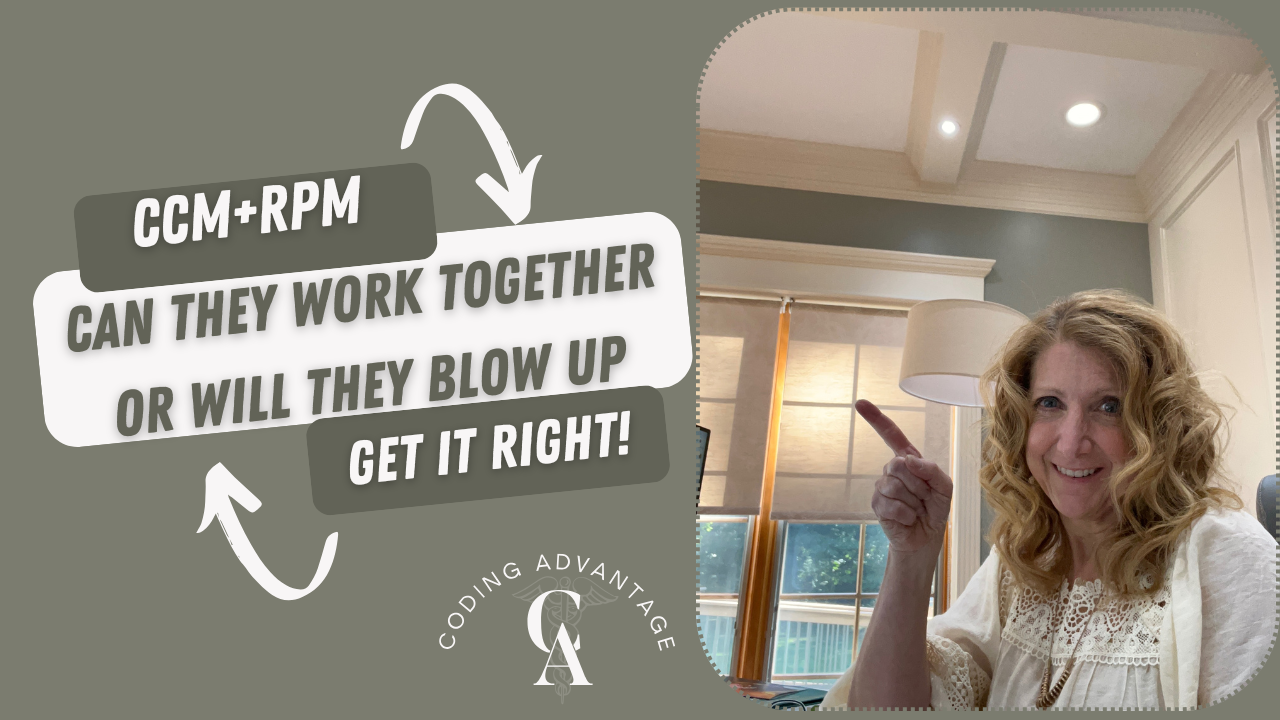CCM + RPM: Can They Work Together or Will They Blow Up Your Workflow?
Apr 30, 2025
If your team is already knee-deep in Chronic Care Management (CCM), you’ve probably heard someone say, “You should add Remote Patient Monitoring (RPM) too!” Sounds good in theory—more patient touchpoints, more reimbursement—but let’s pump the brakes and really look at how these two services can work together, and what could go sideways fast if you don’t set it up right.
Quick Recap: What’s RPM?
Remote Patient Monitoring (RPM) is all about collecting and interpreting physiological data from patients outside of the office—think blood pressure cuffs, glucose monitors, pulse oximeters. The key? It must be automatically transmitted and digitally recorded. No paper logs or "patient said their BP was fine."
The most common CPT codes are:
- 99453 – Setup and patient education
- 99454 – Device supply and data transmission (at least 16 days/month)
- 99457 – First 20 minutes of interactive monitoring/management
- 99458 – Each additional 20 minutes
Unlike CCM, RPM is available to patients with only one chronic condition, and it's open to Medicare and many commercial plans.
Can You Bill RPM and CCM for the Same Patient?
Yes—but carefully.
CMS allows RPM and CCM to be billed concurrently as long as the time spent is not double-counted and the services are distinct.
Here’s the catch:
- You can’t bill for the same minutes twice. If you're spending 20 minutes reviewing blood pressure data, that’s RPM—not CCM.
- You must document separately and clearly outline which staff provided, which service, for how long, and for what purpose.
So yes, you can bill 99490 and 99457 in the same month, but only if you’re doing the work and tracking time to the minute.
What a Dual CCM/RPM Workflow Looks Like
If you’re thinking, “Okay, but what does this actually look like in practice?”—here’s a high-level breakdown:
|
Function |
CCM |
RPM |
|
Type of Data |
Clinical status updates, med review, referrals, care planning |
Objective physiological data (BP, glucose, weight, etc.) |
|
Minimum Time |
20 min/month (clinical staff) |
20 min/month (interactive monitoring by clinical staff) |
|
Setup Needs |
Consent + comprehensive care plan |
Consent + device setup + patient education |
|
Time Tracking |
Required |
Required |
|
Ideal Team Member |
RN, MA, health coach |
RN, MA, health coach or trained tech with clinical oversight |
The secret sauce? Coordination and documentation. If you don’t nail both, you’ll either leave money on the table or open yourself up to audit headaches.
Pitfalls When Running CCM + RPM Together
- Trying to make one person do it all – CCM and RPM need different skill sets and focus. Splitting roles or workflows is key.
- Weak patient education – If the patient doesn’t use the device at least 16 days/month, no RPM payment. Education and follow-up are critical.
- Technology failures – Don’t trust fly-by-night RPM vendors. If the data transmission fails, you can’t bill. “Vet your tech partners carefully—some are solid, proven vendors, while others jumped into RPM during COVID chasing quick revenue.”
- Time tracking gaps – Sloppy logs or overlapping entries are a surefire audit risk. Keep it clean, time-stamped, and segmented.
Is It Worth It?
If you’ve got a high-risk population and a team that can execute well, yes it can be worth it.
But if your staff is already maxed out running CCM and you toss RPM on top without a solid workflow? It’ll crash and burn.
RPM + CCM together can deliver amazing patient outcomes and steady reimbursement but only if you treat them like two separate lanes that occasionally merge. Don’t shortcut the setup.
Need help designing a dual CCM/RPM program that won’t kill your staff or wreck your compliance? That’s my jam. Let’s build something sustainable.
